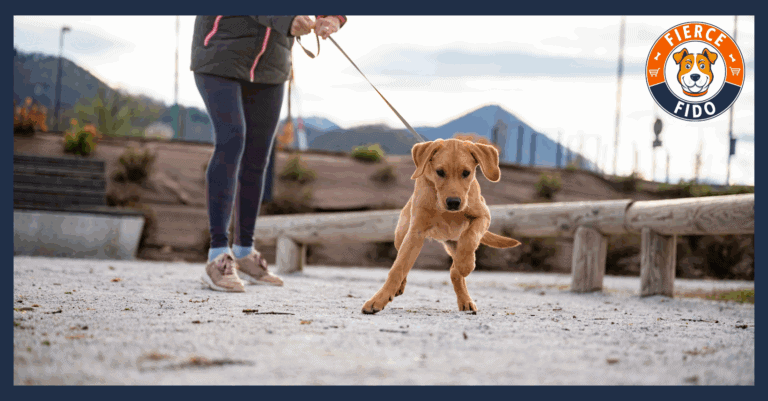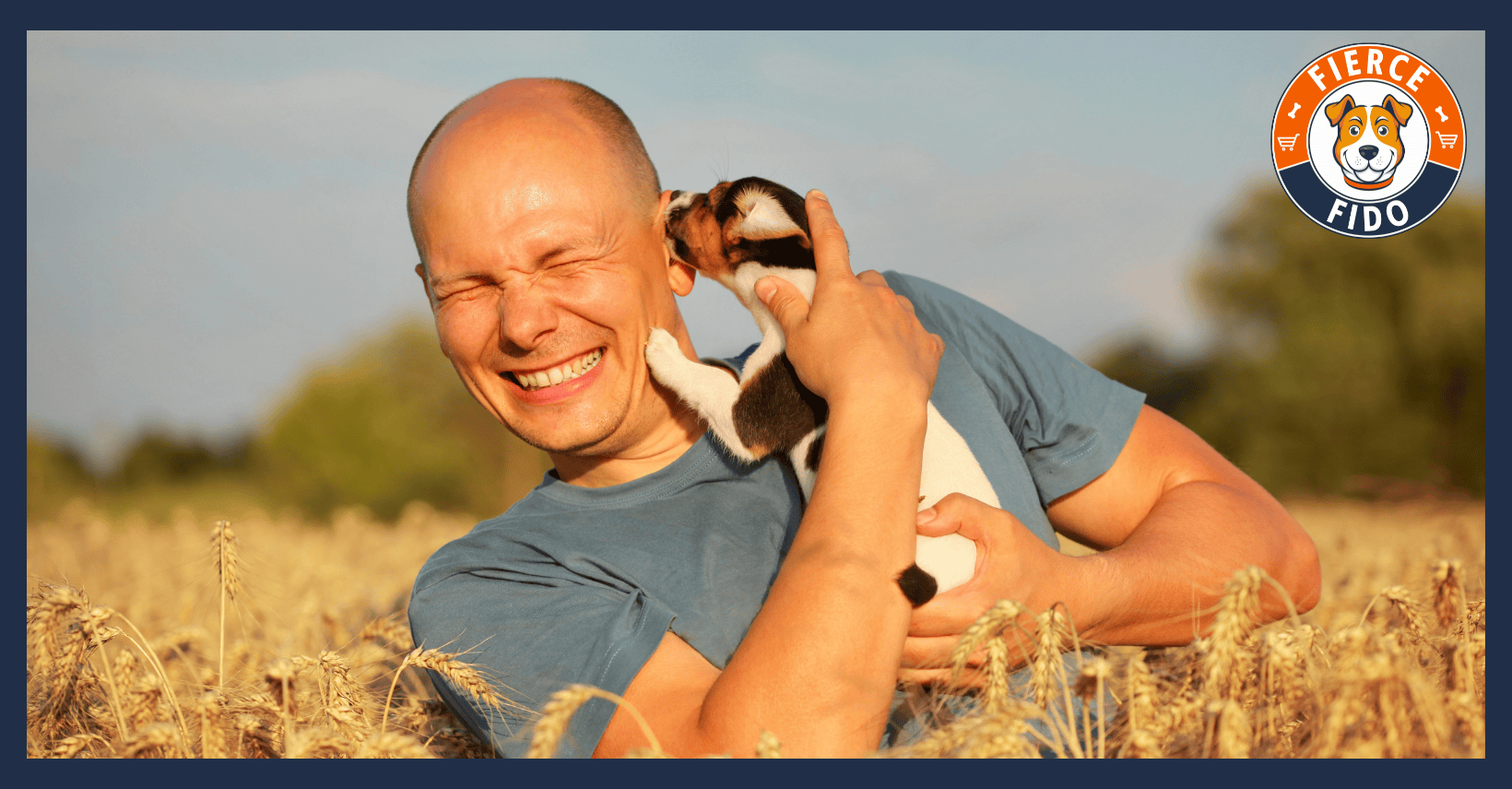

Ever felt a wet nose and a warm tongue in your ear while relaxing at home? If you’re a dog owner, you probably know this sensation all too well.
My own dogs love to lick my ears and even lick each other’s ears while lounging together. I used to wonder why dogs lick my ears so much, especially when they also lick their paws, toys, and even my face.
If you’ve ever caught yourself asking, “Why does my dog lick my ears?” you’re not alone. Let’s dig into the world of dog lick behaviour and see what’s really happening.
Quick answer: why dogs lick your ears. Most commonly, dogs lick to groom, show affection, communicate, or explore scents. Sometimes, ear licking is a quirky behaviour, but it can also signal an underlying medical issue like an ear infection. If your dog is licking your ears excessively, it could be time for a closer look or a chat with your vet.
When I watch my dogs, I notice they use their tongues for everything. They greet me, clean themselves, and even groom one another. Licking in dogs is a natural and instinctive behaviour.
Mother dogs lick their puppies from the moment they’re born. This first grooming behaviour helps clean newborns and stimulates them to eat and breathe. So, when your dog is licking your ears, it may be tapping into this ancient, loving instinct.
Dogs often lick each other’s ears as a way to bond. It’s a sign of trust and comfort within the pack. Since dogs are pack animals, grooming is part of their social system. Dogs lick each other’s ears to keep each other clean and to strengthen social bonds.
Dogs may lick your ears to groom you, just like they would another dog. Your furry friend sees you as part of the pack. Licking is their way to show affection and keep you “clean and healthy.”
You may notice your dog licking your ears after you’ve exercised or sweated. Dogs have a powerful sense of smell and may like the taste or scent of earwax, salty skin, or other odour on your ears. As gross as it may sound, earwax is a substance that dogs find interesting.
Mutual grooming, like when dogs lick each other’s ears, is a normal dog behaviour. It’s something you’ll see in multi-dog households all the time.
A lick can be a way to show love, but it’s also a way to communicate. Submissive dogs often lick the mouths and ears of more dominant dogs. If your dog is licking your ears, it might be saying, “You’re the boss,” or just looking for attention.
Sometimes, licking can signal anxiety or a need for reassurance. Watch your dog’s body language. If your dog licks your ears when it’s feeling nervous or stressed, it may be seeking comfort.
Dogs also lick your face and ears to get your attention. Maybe they want to play, go outside, or just get a cuddle.
Dogs explore the world with their noses and tongues. Since dogs have such a strong sense of smell, your ears may be extra interesting to them. The odour of perfume, shampoo, or even earwax can attract your dog.
Dogs may lick your ears because they’re curious about the taste or smell. Sometimes, they may like the taste of lotion, soap, or even natural skin oils. This is just one of the reasons why dogs lick so many different things.
If you laugh or cuddle your dog after it tries to lick your ears, you may be giving positive reinforcement for the behaviour. Dogs quickly learn which actions get them a happy response. Over time, this can make ear licking a habit.
Behaviours like ear licking can become ingrained if they get lots of attention. If you want to change this, redirect their attention with a toy or treat when they try to lick you.
Most of the time, a dog licking your ears is harmless. It’s a quirky, loving gesture from your four-legged friend. Still, there are times when much licking can be a cause for concern.
Excessive licking can signal stress, anxiety, or even a compulsive disorder. If your dog is licking your ears constantly, or if you notice obsessive licking of their own body or other pets, it’s time to investigate.
The same goes if you see signs of irritation, redness, or swelling on your skin or your dog’s tongue. Persistent licking may irritate sensitive skin or spread bacteria.
Sometimes, dogs lick ears because they sense an ear infection. Dogs have an amazing sense of smell and might notice an odour before you do. If your dog is licking your ears more than usual, or if you notice your dog licking another dog’s ears constantly, it could also be a sign you or your other pet has an ear infection.
If you notice any of the following, speak to your vet:

I get it. Sometimes ear licking is sweet, other times it’s just too much. Here’s how you can handle it:
Ways to manage dog lick behaviour:
If your dog’s licking is obsessive, excessive, or you suspect a medical issue, get your dog checked by a vet. A veterinary professional can rule out ear infection, skin problems, or anxiety.
Dogs lick each other’s ears as a way to groom and bond. In my home, I see my dogs licking each other’s ears while curled up together. It’s a sign of trust and affection, just like licking your ears is a way to show you’re part of the pack.
This behaviour is rooted in their natural pack animal instincts. Dogs may lick each other’s ears to show submission, care, or simply because they like the taste or scent.
Grooming behaviour helps keep the group clean and strengthens social bonds. It’s not just about hygiene, it’s about connection.
If licking in dogs seems obsessive, or if you notice signs of infection, make an appointment with your vet. Ear infections can cause serious pain and irritation for your dog. Look for head shaking, scratching, or a bad odour.
Sometimes, dogs lick ears because they sense a problem. A dog’s sense of smell is far stronger than ours. They may pick up on an ear infection before you do.
If you think your dog may be licking due to stress or anxiety, ask your vet about ways to help. You might need to address the underlying cause or try positive reinforcement for the behaviour you want.
Dog lick behaviour can seem odd or even a bit gross, but it’s usually a sign of love, trust, and a strong bond. My own dogs lick my ears, lick each other’s ears, and sometimes even try to lick my face or hands. It’s all part of their quirky behaviours.
If you’re wondering, “Why does my dog lick my ears?” know that dogs lick for a variety of reasons; affection, grooming, curiosity, or habit. It’s normal dog behaviour, but watch for signs of excessive licking, irritation, or ear infection.
Keep your dog’s ears clean, give your dog plenty of attention, and enjoy the special bond you share. If you ever have concerns, don’t hesitate to get advice from your veterinary professional.
Embrace your dog’s quirky habits! After all, those wet, wiggly moments are part of what makes life with dogs so special!

Get exclusive deals, tips, and big dog banter—straight to your inbox.